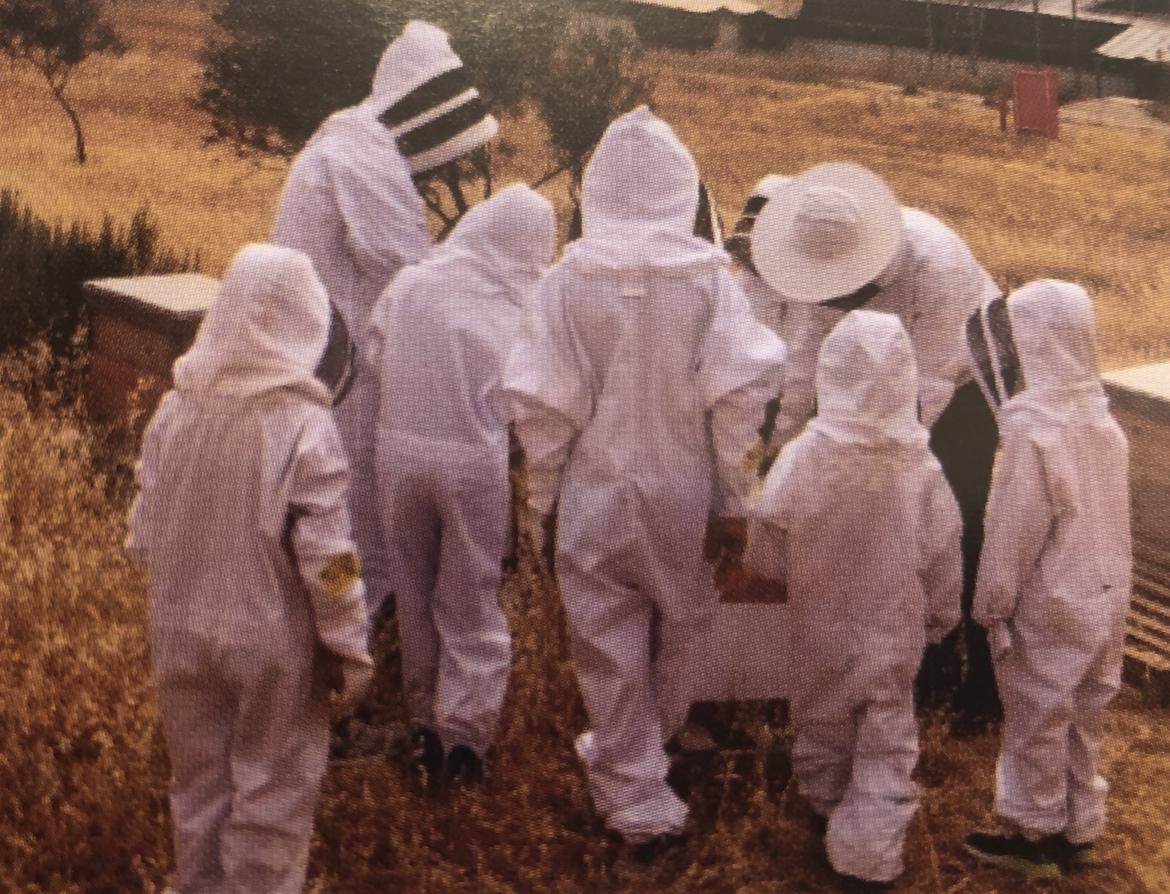ITS ALL ABOUT THE HONEY AND THE STING
A glimpse of a unique beekeeping project in Har Amasa.. A combination of community spirit and an inspiring local initiative.

The summer months often bring with them thoughts and doubts about the future, as well as groundbreaking ventures and projects. One such was also born in Har (Mountain) Amasa, situated within the boundaries of the Tamar Regional Council, in recent years. A group of beekeepers who decided to take their destiny into their own hands last year produced a record amount of 30 liters from a number of active hives, while at the same time enriching a source of learning about bees, one of nature’s most fascinating animals.
This project corresponds mentioned in this article, since bees can be found near water sources. What is more, they are of priceless value to the universe, through their responsibility for creating a significant part of the foods used by the people across the globe.
Among the factors responsible for the implementation Bee Honey project is Yehoshua Peks, a resident of Mount Amsha and a lawyer by profession, who according to him was exposed to the world of bees only 5 years ago. “I read an article by Hilmer Koneman, an Israeli guy who is considered one of the greatest experts in the field with a biodynamic approach that emphasizes the natural aspect, and who teaches beekeeping courses as a hobby. I was very impressed by his approach, what’s more, I was exposed for the first time to the fact that bees are in danger of extinction.”

Yehoshua, who was filled with passion for the new branch that was revealed to him, decided to immediately take up the task and try to promote the field in the districts of the settlement as well. “Mount Amsha is an ideal place for beekeeping, with a lot of open areas and vegetation, especially in the spring. So I decided to try to promote the field in our settlement as well,” he says. “At first we purchased hives and a swarm of bees with a young queen, and later we invited Hilmer himself to teach us the basics of beekeeping. He came to several meetings, and since then everything is history. We started in the field on the slopes of the mountain, purchased equipment and suits and just set off.”
In 2021, the project received a significant incentive, as part of a scholarship given to it by the ‘Thinks Do’ program, an initiative of ICL and in collaboration with the Tamar Regional Council, as part of a desire to connect the community to value-added projects. Thus, the project began with a beekeeping course that included the involvement of residents, the planting of a secret garden adapted to beekeeping in all seasons of the year, and the ongoing activity of children and teenagers, most of them from the community, who were exposed to inspiring educational activities.
Yehoshua adds that the long-term vision is to establish a community visitor center on the mountain, which will be used as a place to hold creative workshops for children from the beehive materials, such as wax candles, honey and more. To this will be added a plan for community participation, which will be based on the establishment and maintenance of the existing nectar flower garden. “In the long term, the vision is to employ local youth at the visitor center, who will be in charge of delivering workshops and lectures to groups of tourists and visitors. These revenues from tourism will be used for employment expenses and deepening investment in the beekeeping industry in the locality,” he said.
About bees, bee hives and everything in between
The honey bee – an endangered insect: honey bees in Israel, and in the whole world, are disappearing. The reasons for the extinction process are not entirely clear (estimates are that a third of the number of bees in the world have disappeared in the last 20 years), but there is an agreement that human influence on the environment harms bees – use of chemical substances in agriculture, air pollution, genetic engineering of bee queens, wind turbines and even radiation from cell phones. All are possible causes of the alarming phenomenon of the collapse of the global hives (CCD syndrome in scientific terms).
Of critical importance to the preservation of ecological diversity in nature: bees play a decisive role in the creation of foods of all kinds, when in practice they are responsible for the pollination process of plants that provide about a third of the food for all humanity (!)
International Bee Day: In 2018, the United Nations General Assembly decided to mark a special day in honor of the bee on May 20. This day is a fertile ground for holding workshops and content aimed at raising awareness of the importance of the honey bee.
In Israel, there are hundreds of beekeepers who take care of tens of thousands of hives: the honey in Israel is produced by about 500 beekeepers who together keep about 120 thousand hives with a permit. The year 2015 was a record year in honey production and amounted to 4.2 tons of honey.
DID YOU KNOW: A honey bee is responsible throughout its life for making one teaspoon of honey





